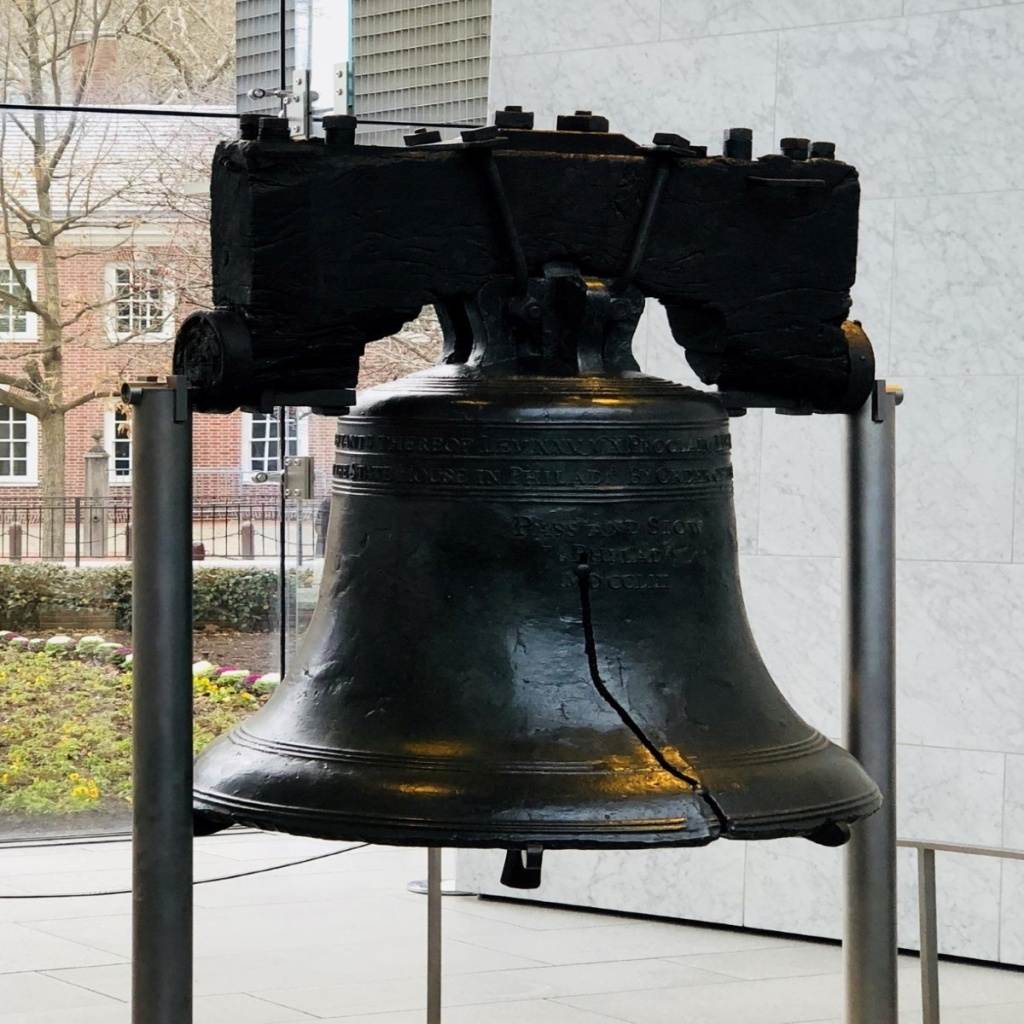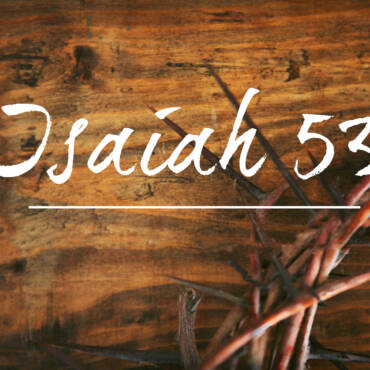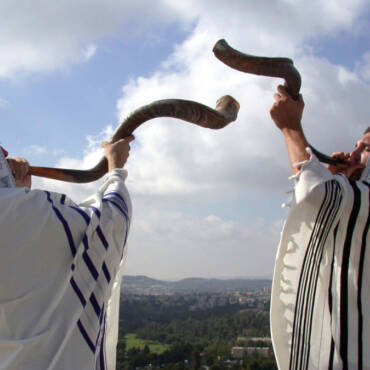A Year of Liberty

The Command to “proclaim liberty,” first found in Leviticus 25:10 for the year of Jubilee, is inscribed on the Liberty Bell in Philadelphia.
In some “liberated” countries, we do not always see this resulting in blessing. In fact, liberty without godliness seems to produce rioting, chaos, insecurity, and terror.
This seeming paradox should bring us back to search the Scriptures as we consider the question, what is true freedom?
The name Jubilee (in Hebrew yovel which means the sound of the ram’s horn) became identified by the term d’ror or “release” (Lev. 27:18; Joshua 6:4).
Jubilee was to be celebrated every 50th year following the 7th sabbatical cycle of years. In Greek, the same word for liberty is found in Isaiah 61:1, and in Luke 4:18.
Interestingly, Yeshua comments on Isaiah’s command to “proclaim liberty” is itself a commentary on the Leviticus portion. In each recurrence to “proclaim liberty” we see a development as to how the Jubilee is applied.
What this shows us is that the purpose of release is so we can return to God – from servitude, from separation of exile, and from slavery to sin. Let’s take a look at this development.
Consecration of the Year
“You are also to count off seven sabbaths of years for yourself, seven times seven years, so that you have the time of the seven sabbaths of years, namely, 40rty-nine years. You shall then sound a ram’s horn abroad on the tenth day of the seventh month; on the day of atonement you shall sound a horn all through your land.
You shall thus consecrate the fiftieth year and proclaim a release through the land to all its inhabitants. It shall be a jubilee for you, and each of you shall return to his own property, and each of you shall return to his family.” (Lev. 25:8-10).
Prior to the year of Jubilee, the land was to be given rest and debts were to be remitted every 7 years for 49 years (Exodus 23:11; Lev. 25:1-7; Deut. 15:1;31). Only after the seven cycles could you have the 50th year of true freedom and proclaim liberty.
But if the owner has not been giving the land its sabbath and forgiving debt, a Jubilee to free all servants would seem over the top – fifty years was probably far longer than his own lifespan! To use liberty for disobedient living would only reinforce the problem.
Jubilee was declared on Yom Kippur, the Day of Atonement (Lev. 25:9). The liberty of Jubilee is the fruit of reconciliation which came on that day.
Without realizing what we have been set free from, it may be hard to set free others from their debts. It gives freedom for those who were not free, but it requires sacrifice and limitation for those that are in charge.
Thus, Jubilee has its foundation in the reconciliation for the Day of Atonement. Yom Kippur atonement restored the nation to its service for God, so His forgiveness is the foundation of our freedom. Through his forgiveness, everyone is liberated to serve Him alone.
Consecration of the year precedes liberty in the year (Lev. 25:10a). Liberty without consecration is desecration. Not only would the land continue to have a sabbath as during the sabbatical years, but now there is an added dimension of “each of you shall return to his own property, and each of you shall return to his own family.”
There would be rest for the land and release of all acquired properties, and all servants.
Consideration for the Afflicted
When Jerusalem was besieged by Babylon, they attempted to appease God by declaring a sabbatical year of Jubilee, at least partially by releasing all their Jewish servants (Jer. 34:8-22). However, they soon broke their agreement and Jubilee was never truly observed.
From a purely economic perspective we can understand why: it basically destroyed the economy that they developed for the past years.
The wealthy who had accumulated land would have to give it all back; those who had accumulated many servants would lose them all. For disobeying God, the Babylonian captivity followed, as was prophesied:
Then the land will enjoy its Sabbaths, all the days of the desolation, while you are in your enemies’ land; then the land will rest and enjoy its Sabbaths. (Lev. 26:34; Jer. 25:11; 2 Chron. 36:21).
The fulfillment of forgiveness is found in restoration: “It shall be a jubilee for you” (Lev. 25:10b). By declaring this, we see that there was restoration to the place of promise. “For the land is Mine” – and the land is still His (Lev. 25:23)!
Thus, every fifty years, we were to hit the reset button. Also, the people belong to Him: “For they are My servants whom I brought out from the land of Egypt” (Lev. 25:42). The land mattered only to point us to the Lord.
The spirit of the Lord God is upon me, Because the LORD has anointed me to bring good news to the afflicted; He has sent me to bind up the brokenhearted, to proclaim liberty to captives, and freedom to prisoners; to proclaim the favorable year of the Lord. (Isaiah 61:1).
Consideration for the afflicted is the character of Jubilee liberty. Isaiah is picturing the Jubilee year and the release of captives and the return, not only within the land, but from another land – Babylon.
The hope of the Messiah is found throughout, as Rabbi David Kimchi notes, “They are the words of the Messiah, who should say, ‘because the Lord has anointed me,’” and as the Dead Sea Scrolls confirm, “the heavens and the earth will listen to his Messiah” (DSS 4Q521).
The redemptive return is their coming back to the Land of Judah with their families, but the preceding chapter reveals that the year of the favor of the Lord is something far more glorious.
In Him is not only fulfillment of the Shabbat in being our rest, but also in Him is found yom shekulo shabbat, “the day when all is Shabbat.” He is the first and last. In Him is eternal life now.
Proclamation of Messiah
This Isaiah portion is explicitly fulfilled by Yeshua in Luke 4:16-18. When He said, “Today this Scripture portion is fulfilled in your hearing” (Luke 4:21), He was publicly declaring Himself as the Messiah as God’s favor. Yet he stopped reading in mid-sentence!
He said, “the year of the Lord’s favor,” but not “the day of vengeance of our God”! This belongs to His second coming and judgement. Messiah came the first time as the Lamb of God; He will return as the Lion of Judah. Jubilee is for proclaiming Messiah.
The promise is that the Messiah will set the captives free. But, captives of what? Often, we think of freedom in political, health or economic terms: slaves freed from the evil master, or a person in bondage to poverty. The Bible speaks of a deeper freedom and a greater liberty from the mastery of sin.
Sin not only defiles the soul, but also perverts our liberty into a license that results in an even worse bondage. Biblical liberty sets one free to fulfill the very purpose of his creation, which is to enjoy a relationship with God and fulfill His will.
As a train is only fulfilled and free while on the tracks, so we are only fulfilled and free when we are “on track” in His will, which is revealed in His word. We may have been derailed by sin, but the enjoyment of freedom is in the application of His word.
In freedom, stay on track, not living by the world’s values, but in Messiah’s victory and grace. The favor of His forgiveness is our freedom!




Add Comment